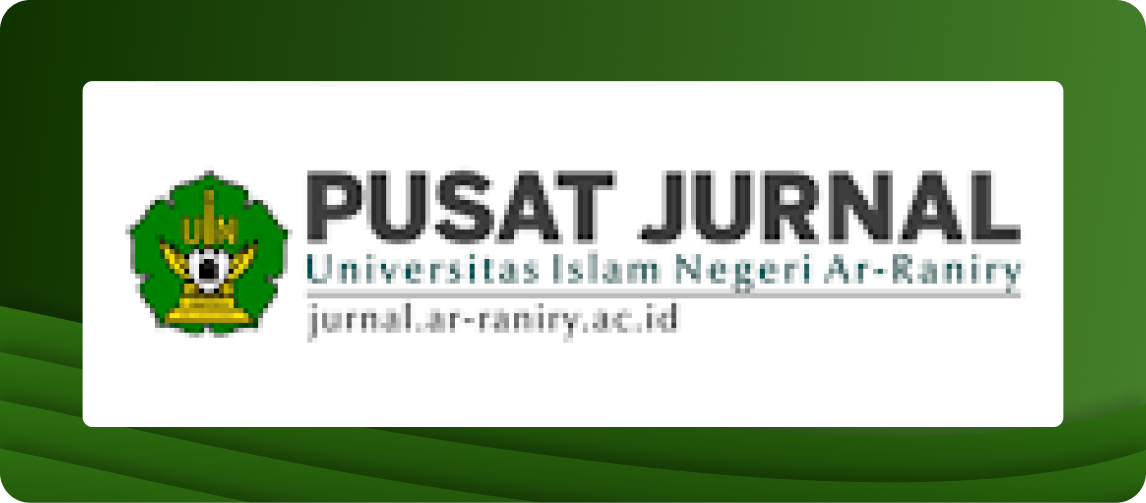Islamic Renewal in the Field of Family Law: A Historical Analysis of Gender Equality
DOI:
https://doi.org/10.22373/ujhk.v6i2.17128Keywords:
Gender equality, Islamic renewal, rahmatan lil ‘alamin, Islamic lawAbstract
This paper aims to discuss Islamic renewal in the field of family law by focusing on gender equality. The unfair treatment of women within pre-Islamic Arabian society was the starting point for Islamic renewal in the field of law, especially of family law. Such treatment was not in line with the principles contained in Islam, i.e., to bring mercy to all worlds. This study used a normative descriptive-analytical method and a sociological-historical approach. The data analyzed came from articles, books, and various references related to the topic. The study concludes that as a religion that brings mercy to all people, Islam reforms the behaviors detrimental to women; yet, the reform is not the end result, in which it is highly likely that it will be updated in the future for the benefit of the community universally. Therefore, a comprehensive understanding is needed in understanding Islamic law related to gender relations between men and women. This study also reveals that socio-historically men and women have a balanced and equal relationship with each other.
References
Journals and Books
Abd Naser, Jamal, "Equalitas Gender (Konsep dan Aktualisasinya dalam Islâm serta Implikasinya atas Rumusan Hukum Islâm),” Al-Ihkam: Jurnal Hukum dan Pranata Sosial 2, No. 2 (2019). DOI:10.19105/al-lhkam.v2i2.2623.
Al-Zuhaili, Wahbah, Fiqih Islam, Alih Bahasa Abdul Hayyie Al-Kattani, Jilid 9. Jakarta: Gema Insani, 2011.
Anggreani, Luciana, “Konstruksi Sosial Terhadap Perempuan Dalam Hukum Keluarga Islam (Analisis Gender),” At-Turost: Journal of Islamic Studies 6, No. 2 (2020). DOI:10.52491/at.v6i2.47.
Azhari, Hulaimi. “Pembaruan Islam Bidang Hukum Keluarga Dan Relevansinya Dengan Tuntutan Egaliter Pria Dan Wanita.” Jurnal Penelitian Agama 21, no. 2 (2020).
Fatma, Yulia. “Batasan Usia Perkawinan Dalam Hukum Keluarga Islam (Perbandingan Antar Negara Muslim: Turki, Pakistan, Maroko Dan Indonesia).” JURIS: Jurnal Ilmiah Syari‘ah, 18, no. 2 (2019). DOI: http://dx.doi.org/10.31958/juris.v18i2.1670.
Fuady, Munir, Metode Riset Hukum: Pendekatan Teori dan Praktek, Jakarta: Raja Grafindo Persada, 2018.
Fitri, Al. “Pembaruan Hukum Keluarga Di Indonesia Melalui Kompilasi Hukum Islam.” PTA Bandung. Accessed November 10, 2023. pta-bandung.go.id.
Hanapi, Agustin and Hafizah Hani Binti Azizan. “Hak Wali Mujbīr Membatalkan Pernikahan (Analisis Putusan Mahkamah Syari’ah Perak).” Samarah: Jurnal Hukum Keluarga Dan Hukum Islam 1, No. 1 (2017). DOI: http://dx.doi.org/10.22373/sjhk.v1i1.1558.
Harahap, Rustam Dahar Karnadi Apollo, “Kesetaraan Laki-Laki Dan Perempuan Dalam Hukum Perkawinan Islam,” Sawwa Jurnal Studi Gender 8, No. 2 (2013). DOI:10.21580/sa.v8i2.662.
Hidayati, Tri Wahyu, et al., “Dynamics of Family Fiqh: The Multiple Roles of Women in Realizing Family Resilience,” Ijtihad: Jurnal Wacana Hukum Islam dan Kemanusiaan 22, no. 2 (2022). DOI: https://doi.org/10.18326/ijtihad.v22i2.219-238.
Ikrom. Mohamad,” Syariat Islam dalam Perspektif Gender dan HAM,” Humanika 18, No. 1 (2019). DOI:10.21831/hum.v18i1.23126.
Ismail, Moh. and Faiqoh Zuhdiana, “Relevansi Hak Wali Mujbir Dalam Pernikahan Anak Gadis Ditinjau Dari Prespektif Gender Hukum Islam,” Jurnal Kajian Hukum Islam 7, No. 2 (2020). DOI:10.52166/jkhi.v7i2.17
Mubarok, Faidol. “Poligami (Tafsir QS. An-Nisa’ 4:3).” Yogyakarta, 2021.
Mu’in, Fathul, et.al., “Pembaruan Hukum Keluarga Islam di Indonesia Dalam Peningkatan Status Perempuan.” Legal Studies Journal Vol 1, no. No. 1 (2022).
Mujib, Lalu Supriadi Bin. “Revitalisasi Hukum Waris Islam Dalam Penyelesaian Kasus Sengketa Tanah Waris Pada Masyarakat Sasak.” Ijtihad: Jurnal Wacana Hukum Islam Dan Kemanusiaan 19, no. 1 (2019).
Nasution, Khoiruddin. “Islam Membangun Masyarakat Bilateral Dan Implikasinya Terhadap Hukum Keluarga Islam Indonesia.” Al-Marwarid 17, no. 1 (2007).
Nurdin Nurdin, “Gender Equality” Revisited: Deconstruction of Islamic Thought Towards Gender Equality,” FiTUA: Jurnal Studi Islam 3, No. 1 (2022). DOI:10.47625/fitua.v3i1.341.
Nurrahman, Panji,” Membangun Kesetaraan Gender Dalam Keluarga Pasangan Pekerja,” Jurnal Harkat Media Komunikasi Gender 18, No. 2 (2022). DOI:10.15408/harkat.v18i2.26289.
Nawawie, Hasyim. Tarikh Tasyri’. Surabaya: Jenggala Pustaka Utama, 2014.
Rahmawati, St., “Mainstreaming of Gender Equality in Islamic Family Law: Opportunities and Challenges,” Samarah: Jurnal Hukum Keluarga dan Hukum Islam 4, No. 2 (2020). DOI: http://dx.doi.org/10.22373/sjhk.v4i2.8110.
Ratnawati, Dewi, “Kesetaraan Gender Tentang Pendidikan Laki-Laki Dan Perempuan,” Jurnal Harkat Media Komunikasi Gender 15, No. 1 (2019). DOI:10.15408/harkat.v15i1.13436.
Romziana, Luthviyah. “Pandangan Al-Qur’an Tentang Makna Jahiliyah Perspektif Semantik.” Jurnal Mutawatir 4, no. 1 (2014).
Wahidah Wahidah, “Relasi Setara Antara Laki-Laki Dan Perempuan Dalam Kasus Kewarisan Islam (Faraidh),” Syariah: Jurnal Hukum dan Pemikiran 18, No. 1 (2018). DOI:10.18592/sy.v18i1.2144.
Sopyan, Yayan. Tarikh Tasyri’: Sejarah Pembentukan Hukum Islam, Depok: PT. Rajawali Pers, 2018.
Sidiq, Yogi Hasbi and M. Erihadiana, “Gender dalam Pandangan Islam,” JIIP: Jurnal Ilmiah Ilmu Pendidikan 5, No. 3 (2022). DOI:10.54371/jiip.v5i3.502.
Downloads
Published
Issue
Section
License
Authors who publish in El-Usrah: Jurnal Hukum Keluarga agree to the following terms:
Authors retain copyright and grant the journal right of first publication with the work simultaneously licensed Attribution-ShareAlike 4.0 International (CC BY-SA 4.0) that allows others to share the work with an acknowledgment of the work's authorship and initial publication in this journal.
Authors are able to enter into separate, additional contractual arrangements for the non-exclusive distribution of the journal's published version of the work (e.g., post it to an institutional repository or publish it in a book), with an acknowledgment of its initial publication in this journal.
Authors are permitted and encouraged to post their work online (e.g., in institutional repositories or on their website) prior to and during the submission process, as it can lead to productive exchanges, as well as earlier and greater citation of published work. (See The Effect of Open Acces)

















